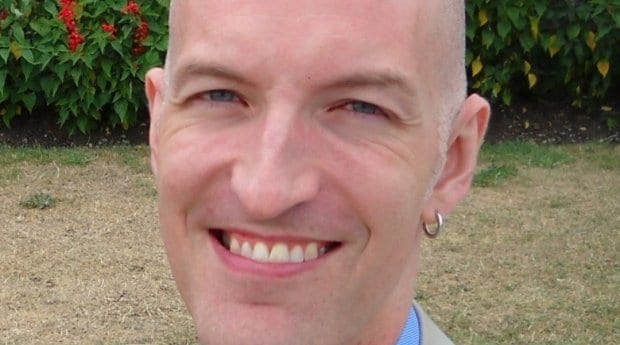How much do doctors and other health care providers know about the needs of gay and bisexual men in BC’s Interior?
A conference planned in Kelowna on May 19 aims to raise awareness and enhance doctors’ skills to ensure that men who have sex with men in the Okanagan have access to good health care too.
“We want to make sure that service providers and health care professionals have the knowledge they need to serve gay, bi and other men in the Interior,” says Dylan Wall, who is organizing the Men’s Health Matters conference for the Men’s Health Initiative of the Living Positive Resource Centre in Kelowna.
Wall says the conference is geared toward health care professionals, as well as interested community members, and may become an annual event depending on turnout.
Okanagan Pride Society president Wilbur Turner, who will be presenting at the conference, says he routinely receives calls from people in the Interior seeking a gay-friendly doctor. “In the past I’ve referred people to my own doctor but he’s now moving to Vancouver so I don’t have the answer,” he says.
Turner says that many doctors in the area assume their patients are straight and don’t ask any questions that may be relevant to gay men’s health.
“A lot of people I’ve talked to say they don’t actually disclose their sexual orientation to their health care providers,” he says. “There’s a general kind of feeling among many of them because of bad experiences and some unpleasant situations, where they haven’t been treated nicely by medical receptionists and medical professionals. My sense is that some doctors are awkward about having that conversation. Maybe it’s embarrassing or they don’t know how to have the dialogue.”
Trevor Corneil, acting chief medical officer for Interior Health, says the average general practitioner in Kelowna doesn’t have any less knowledge about gay men’s health issues than their Vancouver counterpart. However, he says, the Interior Health region lacks Vancouver’s concentration of clinics that specialize in LGBT health services, such as the Health Initiative for Men, the Bute St Clinic and Spectrum Health Clinic.
“If you step outside of those spaces you can even go down the street on Burrard or on Cambie or Broadway and you could walk into a GP’s office or a specialist’s office and feel absolutely excluded or erased as a queer individual, so there would be no acknowledgement of the existence of queer identities,” Corneil says.
“Really the difference is that in Vancouver I would say there is a little bit more awareness in the general population that queer people exist. And when it’s brought to the attention of a clinician they may know how to address it but probably not, and will probably refer the person to a clinician who does provide queer-relevant health,” he says.
“In Interior Health, in general, I would say there is less awareness but it’s increasing — and has increased drastically over the past five years — that the queer population exists and they are part of our larger population.”
Corneil notes that the Seek and Treat for Optimal Prevention of HIV/AIDS (STOP HIV/AIDS) program, a province-wide program that aims to reduce HIV transmission through increased testing and treatment, has brought LGBT-specific health care information closer to home.
“With the Stop HIV program we’ve actually been able to build quite a robust set of access points for gay men who are impacted by HIV. And so we can now say, and this is a big change, that anywhere we live in the Okanagan we can find you an advanced practice infectious disease GP, nurse practitioner or other type of health care worker who can provide you with care you need with regards to HIV.”
Corneil says this program has increased awareness of the health care needs of LGBT people, but acknowledges there is much to be done.
“We need to go beyond awareness,” he says. “We need to build not just aware but accessible and then knowledgeable providers at all levels of the continuum of care, so that includes health workers, non-profits, Interior Health employees, that could include private, physicians for Interior Health and acute community services.”
The Men’s Health Matters conference will take place on Tuesday, May 19 from 8:30am to 3:30pm at the Coast Capri Hotel, 1171 Harvey Ave, in Kelowna, BC. For more information email Dylan Wall at dwall@lprc.ca or call 778-753-5830. Or click here for the conference’s Facebook page.

 Why you can trust Xtra
Why you can trust Xtra


